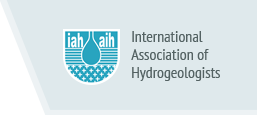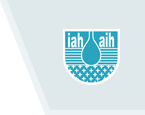IAH-NL MSc Thesis Prize (PSSP 2021)
Pieter Stuyfzand Scriptie Prijs 2021: Results
The Pieter Stuyfzand Scriptie Prijs is a MSc thesis award that was created in 2019 in honor of the retirement of Prof. Dr. Pieter S. Stuyfzand for his contribution to the development of hydrogeology in the Netherlands and worldwide and for his dedication to the importance of hydrogeological fieldwork and university education. The IAH-NL Pieter Stuyfzand Thesis Prijs is awarded every year to one (1) graduate who has written a thesis on a groundwater-related subject.
The board of The Netherlands Chapter of IAH is pleased to announce that the four MSc theses, previously nominated for the 2021 (PSSP) have now been thoroughly evaluated. The topics of the nominated theses range from urban groundwater focusing on the interactions and impacts of aquifer thermal energy storage (ATES) systems, to coastal groundwater focusing on the impacts of sea level rise and extreme weather events and to mountainous groundwater looking at the drying of springs high-up in the Himalayas. Despite this wide topical breadth, it also highlights global warming as an important driver for groundwater research in the Netherlands.
These four theses all received honorable mentions with their nomination and selection as candidates for the PSSP 2021, and stand out as clear examples of the high level of ongoing hydrogeological research in the Netherlands. Below we reflect on our observations during our evaluation.
PSSP 2021 Honorable mentions
Although aquifer thermal energy storage (ATES) systems provide great potential for reducing CO2-emissions associated with the heating and cooling of buildings, the concentration of ATES systems in urban areas coincides with urban groundwater frequently being contaminated. Therefore, the research by Marleen Ketelaars (Utrecht University) focused on how spatial ATES density and well placement strategies affect spreading and dilution of groundwater contaminants. Through integrated modelling of the interaction between ATES systems and groundwater contamination, a range of factors and processes were identified and assessed for their quantitative impact on contaminant spreading. Overall, Marleen clearly showed to what extend various types of organisation and mutual distances between ATES wells affect spreading of a contaminant location within the hydraulic influence of ATES wells.
With global warming likely resulting in more extreme hurricane events in peninsular Florida, this might affect the fresh groundwater availability in addition to the associated sea level rise. Therefore Thijs Hendrikx (Utrecht University) performed a numerical groundwater modelling study incorporating hurricane characteristics from different climate scenarios to explore the possible impacts of hurricane-induced saltwater intrusion. The innovative integral approach illustrated both the potential of recovery of coastal groundwater system after hurricane-induced flooding as well its sensitivity to hurricane intensity and frequency.
The particular vulnerable conditions of Small Island Developing States (SIDS) for the impact of climate change on fresh water availability was highlighted in the research conducted by Simon Jansen (VU Amsterdam), by assessing the behaviour of the fresh groundwater lens on which Laura island, like many other atolls, depends. Despite limited data availability, modeling of the impact of climatic and hydrogeological parameters illustrated the sensitivity of such groundwater systems, particularly for sea water rise. Overall, this study makes a strong call for further research and data collection to further develop the understanding of atoll hydrology to allow sustainable fresh groundwater management to secure viable fresh water supply on which the island communities dependent so strongly.
In the Himalayas, climate and land use change has already been affecting the reliability of mountainous springs, on which many of the rural communities dependent for their livelihood. However, to date little is known about what controls the location and vulnerability of springs. Focussing on the Himalayan state of Uttarakhand in India, Aditya Vikram Jain (IHE Delft) aimed his research to assess the conditions for the spring occurrence and behaviour, to identify groundwater dependent ecosystems and their vulnerability using machine learning, remote sensing (NDVI), hydrogeostatistics, field surveys and social methods. Overall, this highly integrated and innovative approach provided very important insights in the occurrence of springs in resilient soil moisture zones (SMZs) at higher elevation, on north-east facing slopes in proximity to recharge zones in the area. In adaptation to climate change, these may provide, sustainable alternatives for the more vulnerable, both in terms of quality and quantity, springs in lower-lying more urban areas. In general, the approach provides a means to understanding the complex functioning of how spring sheds in the Himalayas and how these can be sustainably managed and protected.
Winner PSSP 2021
Pleased with the high level of the above mentioned MSc theses, the IAH NL board had the task to determine the recipient of the Pieter Stuyfzand Scriptie Prijs 2021. Although the difficulty of this task required careful deliberation, overall it became clear that the impressively extensive and integral approach of the research combined with the urgency of the research topic and practically useful, clear and well-presented results have made Aditya Vikram Jain’s thesis the overall favorable candidate for our PSSP 2021. We therefore congratulate Aditya Vikram Jain and look forward to him presenting his thesis work during the next IAH-NL meeting, for which the date will be announced in the near future.




